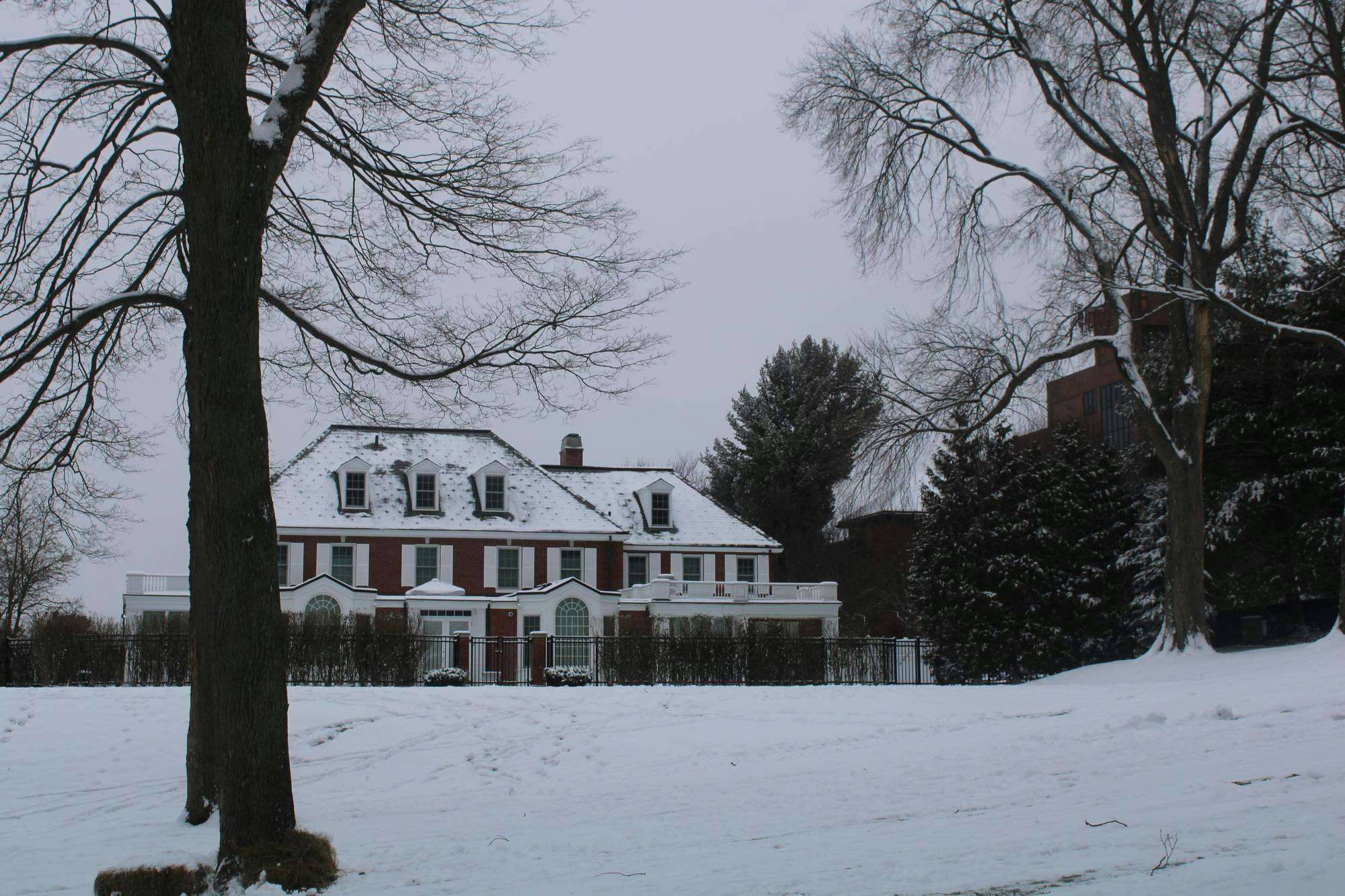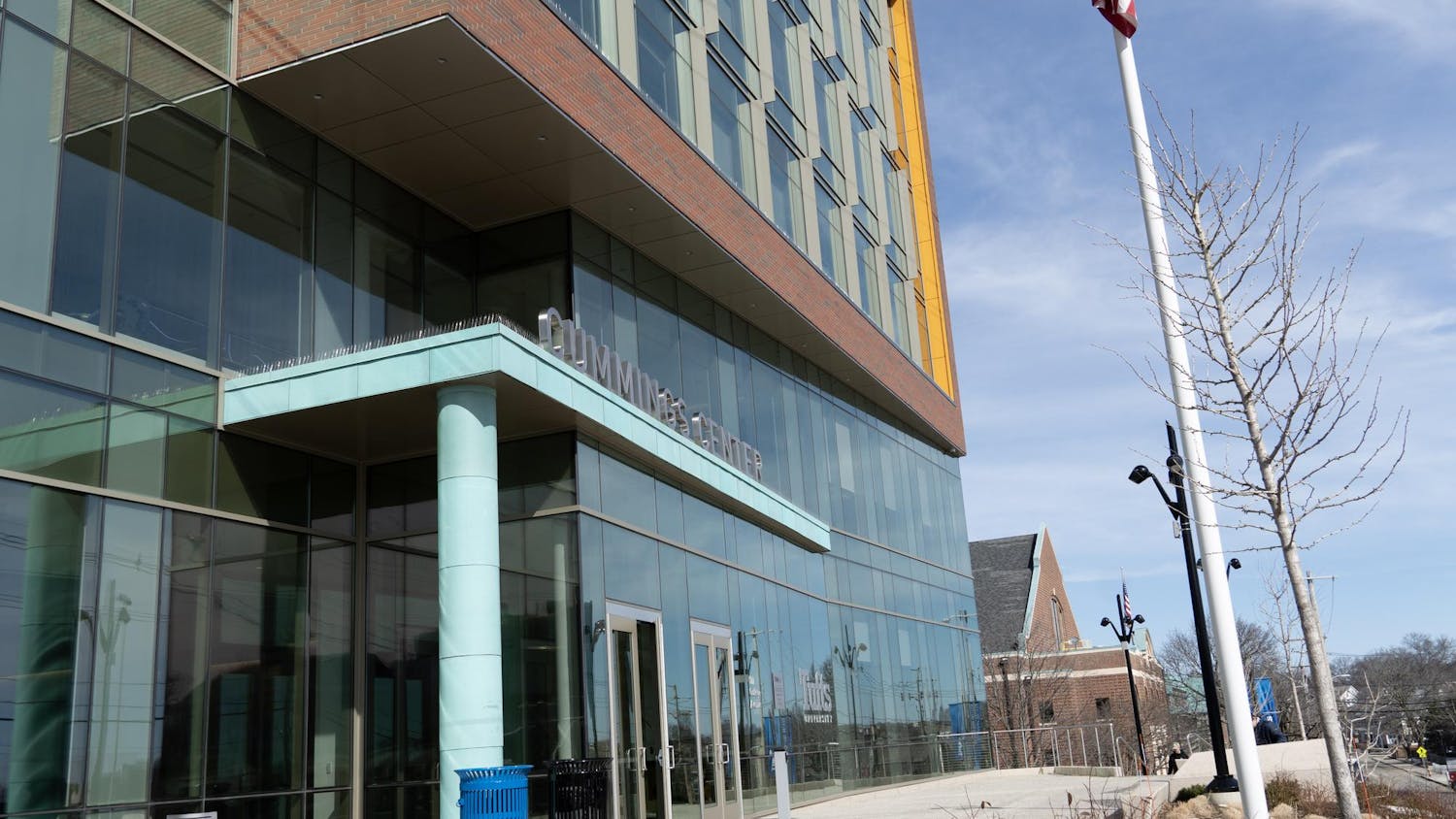For the first time since November, University President Sunil Kumar publicly addressed the Israel-Hamas war in relation to university activism in a video message emailed to the wider Tufts community on Tuesday.
Campus conversation over the conflict has exploded at Tufts ever since Hamas — a U.S.-designated foreign terrorist organization based in Palestine — launched a surprise attack on Israel in early October, kidnapping around 250 Israelis and foreigners and killing over 1,200 people. Since then, Israel’s counterwar in the Gaza Strip has killed over 24,000 Palestinians, according to the Palestinian Health Ministry, with thousands more injured or displaced.
As the present conflict passes the 100-day mark, the campus remains divided across a spectrum of opinions.
Students organized and participated in protests and sit-ins throughout the fall 2023 semester, making demands of the university to divest from Israeli-profiting companies and to call for a ceasefire in Gaza. Together, multiple student groups formed the Coalition for Palestinian Liberation at Tufts, which described its purpose as “fighting for a free Palestine by demanding action from our institutions,” in its Nov. 17 op-ed.
Last semester, the Daily also received and published several op-eds from current students, professors and alumni reflecting pro-Israeli perspectives.
“It is possible to denounce terrorist attacks on innocent civilians in Israel and to acknowledge and speak out against the suffering and loss of innocent Palestinian civilians in Gaza,” Kumar said in the video. “It is possible to be sympathetic of the humanitarian needs of the Palestinian people, while still demanding the return of Israeli hostages. And it is possible to be supportive of the self-determination rights of both Israelis and Palestinians without coming across as somehow being blindly supportive of violence.”
In several community-wide emails, senior leadership has also called Hamas’ actions acts of “pure barbarism” and repeatedly denounced all forms of antisemitism, Islamophobia and anti-Arab sentiments.
“While I celebrate and encourage community members who support their causes through protest and activism, there is a danger when activism disrupts the life of the university, such as when protesters employ the heckler’s veto, shouting down other speakers or when repeated and provocative activism results in harassment for some of our community members,” Kumar said in the video.
Kumar also called for the university community to stay “together meaningfully” so that it “thrives in a safe and productive environment that is conducive to learning, living and working.”
“In a university, disruption cannot take the place of dialogue,” Kumar said. “Our values require us all to engage in inquiry and in conversation, to probe and discuss the very things that we disagree on, and to seek deeper and more meaningful understanding.”
In its statement posted on the Tufts Students for Justice in Palestine Instagram, the Coalition for Palestinian Liberation stated that it “firmly rejects President Kumar’s reductive call for dialogue and conversation in place of direct action to end the ongoing genocide in Palestine.”
“Throughout his speech, President Kumar continued to amplify the harmful and misleading narrative that there are two equal sides at play in this so-called ‘conflict’ behind the ongoing genocide in Gaza,” the coalition wrote in its statement. “President Kumar once again used racist selective application of the term ‘terrorist’ to target and dehumanize Palestinians while failing to mention the state-sanctioned terrorism that Israel has enacted on Palestinians for over 75 years, including the brutal genocide over the last 103 days.”
CPLT noted in its post that Kumar’s recent message marks the first time a university communication has directly included the word “Palestinian.”
The post listed a set of demands from the university, which it believes “are vital in bringing an end to this university’s complicity and financial support for the ongoing genocide in Gaza.”
A representative from Tufts Friends of Israel, a self-described pro-Israel student organization, wrote in a statement to the Daily that “FOI is heartened to hear President Kumar’s remarks in his Spring semester address.”
“As always, FOI strongly believes in fostering a campus climate where students can freely and respectfully exchange ideas,” the representative wrote. “As we have done since this war began, we will continue to advocate for our point of view while being open to new ideas, dialogue, and nuanced perspectives. That includes our long-held view that Israel has a right to exist, defend itself, and return its hostages while similarly mourning the impact of the current war on Palestinian civilians.”
Kumar also reflected personally on his first months at the university and set forth his hopes for the community.
“One thing I regret from last semester is that at times we did not show enough empathy for those who do not share our perspectives,” Kumar said. “I include myself in that criticism. We must all do better. In our advocacy, we cannot sacrifice our empathy for our fellow community members.”






